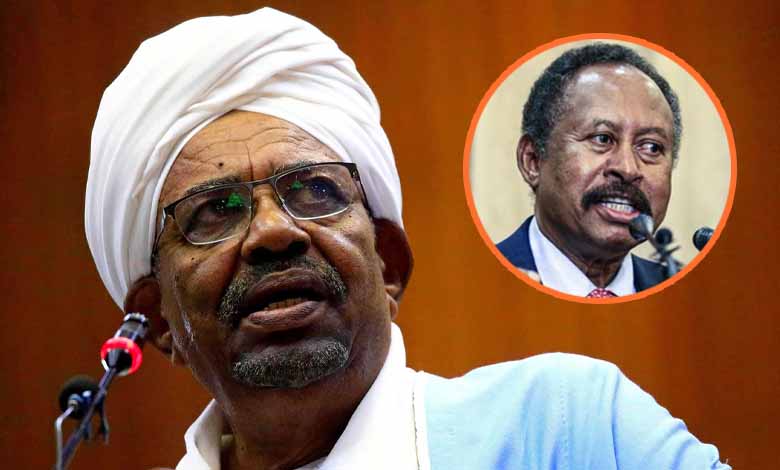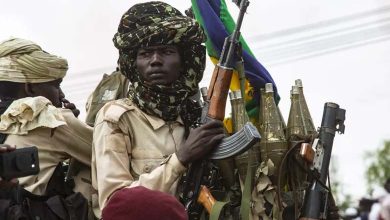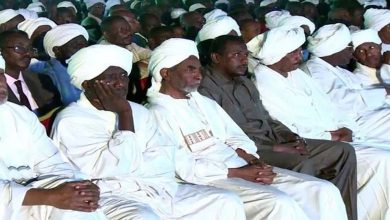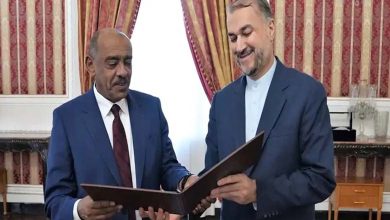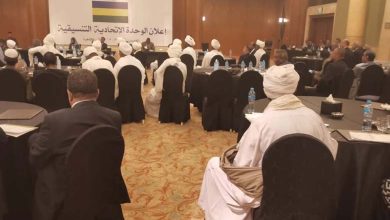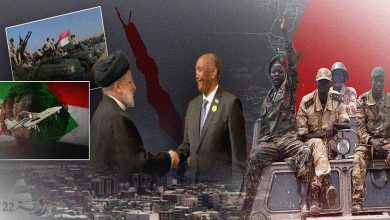Sudan: Abdel Fattah Abdelrahmane al Burhan is now the embodiment of military power
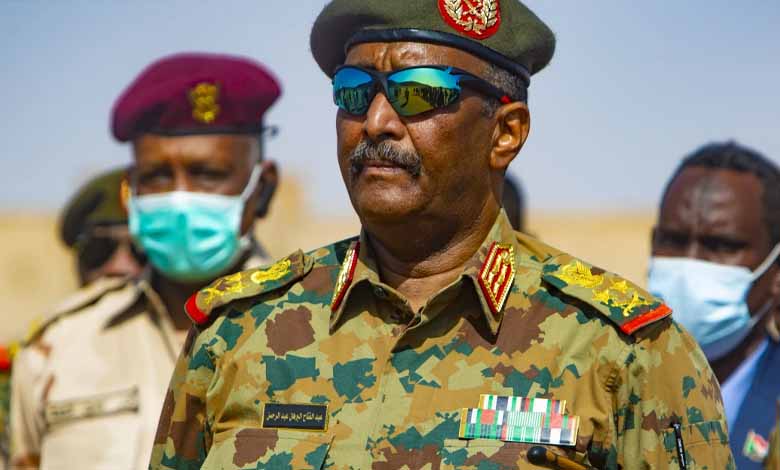
General Abdel Fattah Abdelrahmane al‑Burhan became the focus of the attention of Sudanese and the world after bold decisions he made yesterday, Monday, in his capacity as the supreme commander of the armed forces, met with the rejection of some political forces, especially those that were participating in the government.
“After leading the transition for more than two years, al-Burhan announced the dissolution of the two sovereign councils he headed, the ministers, the dismissal of all provincial governors, and the completion of the tasks of the Brotherhood’s dissolution committee”.
Al‑Burhan appeared on state television in military uniforms and firmly stated that he wanted to “correct the revolution” that overthrew the regime of deposed president Omar el-Bechir in 2019.
“The Sudan has entered a new phase, after days of popular protests raising almost the same demands, amid a sharp disagreement between the civilian and military component, within the sovereign council that has ruled the country for the past two years.”
Who is the military personality who has been at the forefront of the Sudanese scene since el-Bechir’s ouster and has returned to be the focus of a new and more critical crisis?
General Abdel Fattah al-Burhan has a wealth of military experience, in addition to the popular and political consensus he gained immediately after el-Bechir’s ouster that made him the person needed to lead the previous phase.
-
UN Rejects Undermining of Transitional Process in Sudan
-
Sudanese reject Brotherhood attempts to poison revolution
With his constant smile and proud stature, al-Burhan was known as a military figure close to the simplicity and spontaneity of the Sudanese people. Throughout his media appearances and enthusiastic speeches, he remained a follower of the Sudanese people and a liking for a charisma that is famous in the history of the military figures who led the country.
This personality was formed after the accumulation of a wealth of military expertise, to which political statesmanship was added during the transitional period, dealing with the political scene, and attracting the leaders of the armed struggle movements to the peace tables.
Natural path
“The progression of al-Burhan in the military was, by natural route, from an army transit officer to the chief of staff of the ground forces and the army inspector general, through many military missions at home and abroad.”
“The name of al-Burhan became even more prominent when deposed President Omar el-Bechir elevated him from the rank of lieutenant general to the rank of lieutenant general, and appointed him inspector general of the armed forces to the top of the military’s low-profile officers.”
“Al-Burhan, who has become one of the army’s most quietly serving leaders outside the media, according to people familiar with military life in Sudan, has refused several executive positions, preferring to remain in the army after he presided over the military council after el-Bechir was overthrown on April 12, 2019.”
Since then, al-Burhan has gone from a shadow figure to a de facto president.
In August 2019, after street violence and negotiations with the Coalition of Forces for Freedom and Change that led the popular protests, the junta signed an agreement with the coalition known as « Constitutional Document » that provides for a transitional period during which civilians and military personnel share the power to lead the country towards elections and civilian rule.
Under this agreement, the Sovereign Council, which was entrusted with overseeing the administration of the transition, presided over al-Burhan.
-
Saudi Arabia Condemns Failed Coup Attempt in Sudan
-
Sudan Muslim Brotherhood corruption … the freezing of assets of 161 elements, among them prominent leaders
Birth and upbringing
Al-Burhan, 61, is from the village of Gundato on the east bank of the Nile River west of Chindi City, where he grew up before moving to Khartoum and joining the 31st Armored Division.
In his first sensitive assignment, Al-Burhan, a lieutenant colonel, moved to Central Darfur, western Sudan.
Al-Burhan then worked with the border forces for a long time, before he moved to become a military attaché in China, returned to command the border guards, and later headed the Land Forces Staff, before becoming inspector general of the Sudanese army.
Among the most prominent military tasks the army has entrusted to al-Burhan is supervising Sudanese forces in Yemen in coordination with Mohamed Hamdan Dogolo, commander of the Sudanese Rapid Support Forces.
“Following the resignation of former SCAF chief Awad Ibn Ouf and his deputy Kamal Abdel Maarouf, Al-Burhan was the most acceptable figure to lead Sudan’s transition, and when he was sworn in, joys swept the country’s streets.”
Observers described the wedding celebrations as a second victory for the will of the masses, who were calling for the selection of a person who does not belong to any political movement and enjoys great popular consensus.
Al-Burhan generally appears in his military uniform with his swastika on his shoulder, often accompanied by the vice-president of the Council of Sovereignty, Mohamed Hamdan Dogolo, known as “Hamidiati,” the commander of the Rapid Support Forces accused of quelling the 2019 uprising.
There was no record of al-Burhan before of belonging to any political movement in Sudan, which made him a consensual figure that has popular acceptance after the overthrow of el-Bechir. Will he succeed in getting Sudan out of its crisis this time?

